During my birthday week, I took a much-needed break from work and financial stress. Amid this period of rest, I reflected on my health and unexpectedly found myself confronting my deeply ingrained, silent struggles with disordered eating.
The arrival of my parents brought a mix of relief and anxiety. For years, I’ve concealed my struggles with food and exercise from even those closest to me. Once again, I found myself tied to this secrecy, frantically hiding my kitchen scale, a symbol of my relentless pursuit of control over my food intake. Their arrival, at a time when my mental state was already fragile, disrupted my food and exercise routines, my coping mechanisms in times of stress and depression. Abandoning these coping mechanisms and relinquishing perceived forms of control amplified the disordered eating voices that warned of consequences if I dared to rest.
Despite the internal battles, I maintained a façade of normalcy. However, during and after my parents’ visit, I was forced to confront a harsh reality: my continued struggles with disordered eating. Additionally, this period of rest allowed me to reflect on recent health struggles, intensifying this truth and uncovering the unconscious denial that has veiled my deep-rooted issues with food, exercise, and the complexities of my own mind.
Struggles with Food Anxiety and Exercise Worries
With the anticipation of my parents’ visit, I struggled with food anxiety and exercise worries. Knowing I wouldn’t be able to weigh and track my food triggered the disordered eating voice, as I feared deviating from my “clean” eating habits. Additionally, straying from my usual exercise routine triggered the compulsive exercise voice, echoing concerns of potential weight gain or loss of muscle mass.

A Shift from “Clean” Eating
With my parents’ arrival came a shift in my approach to food. While I typically eat “clean” foods, my parents’ eating habits align more closely with the Standard American Diet, including foods I’ve previously categorized as “bad.” Surrounded by “junk” food and carbs galore – all the foods I’ve long demonized and restricted– I confronted deep-rooted anxieties and disordered eating patterns. In the past, such situations would have triggered a binge, followed by hours of cardio or severe calorie restriction the next day. Though I’ve made strides in overcoming these patterns, my mind remains ingrained with disordered eating thoughts and exercise compulsions.
A Pause on Exercise

During my parents’ visit, I pressed pause on my regular exercise routines, straying from my habitual 5 a.m. workouts. This break allowed me to confront the compulsion to exercise, which has shifted from intense cardio to strength training. Despite feeling anxious about resting, which previously made me feel “fat” or “disgusting,” I realized how desperately my mind and body needed this relief.
Disordered Eating Struggles: Health Insights Gained through Rest
The week of rest provided invaluable health insights, shining light on my continued disordered eating struggles. For instance, I still struggle with micromanaging food. Also, by over exercising, I have been depriving my body of much-needed rest and recovery.
Recognizing the Importance of Rest and Recovery
My obsession with strength training and muscle gain has led me to overlook the importance of rest for my body’s recovery. After five days off, I realized the toll of relentless exercise on my body. Contrary to my fears of losing progress, prioritizing rest revitalized my energy and offered newfound mental clarity. Despite initial challenges, including feels of guilt and anxiety, this period of rest highlighted the importance of recovery and led me to reevaluate other disordered behaviors.
Reevaluating Eating Habits
Stepping away from obsessive food tracking allowed me to reevaluate my relationship with food. While initially daunting, indulging in meals prepared by my mom and foods I had long restricted evoked a sense of nostalgia from my childhood days when I could eat for pleasure and satisfaction without controlling calories.
Relinquishing Control
After my parents left, I continued to refrain from weighing my food and confronted my fear of relinquishing control. Despite eating more calories than ever before, with a goal of muscle gain, I realized I’ve still been restricting in some capacity, reluctant to indulge in foods I’ve deemed as “bad” or “off-limits.”
Facing Fear Foods
Unconsciously labeling and restricting certain foods has caused me to fear them. For instance, I would avoid buying “junk” food, fearing I would spiral out of control and binge. This fear has permeated various aspects of my eating habits, making it challenging to enjoy foods without experiencing guilt or anxiety.
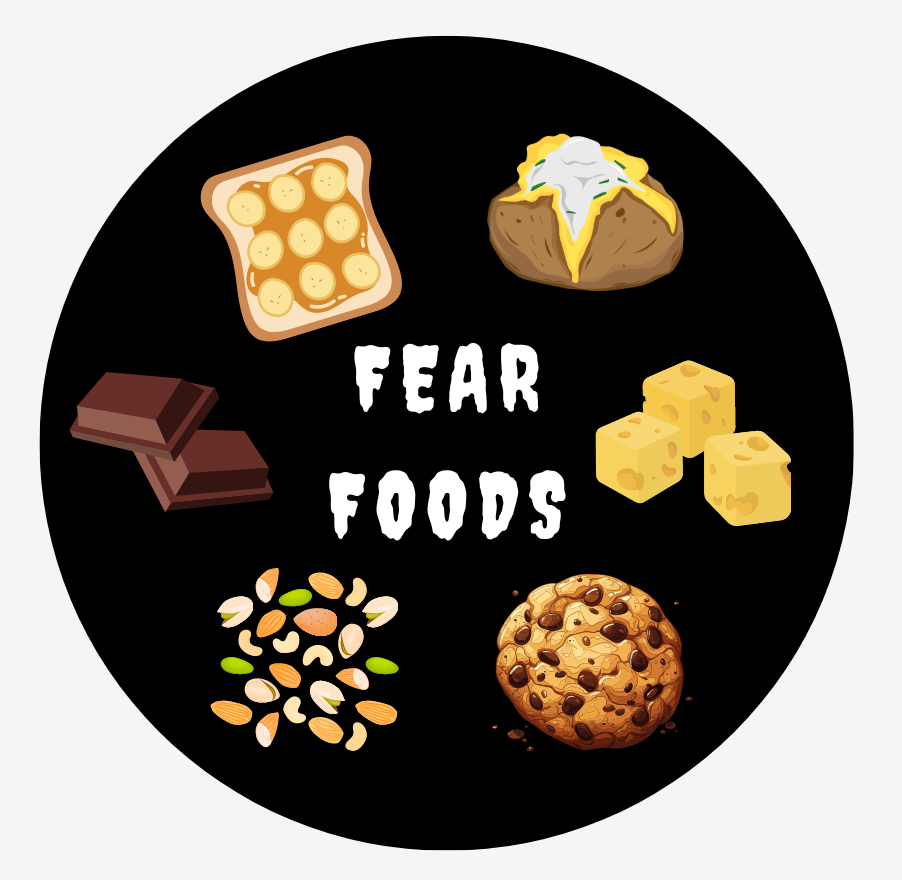
For instance, one of my favorite things to eat is peanut butter and banana toast. While I’d allowed myself to eat it occasionally, I always carefully measured the peanut butter and removed most of the bread, weighing it in grams. As I let go of the rigid calorie counting, I found myself craving peanut butter and eating it by the spoonfuls.
Moreover, eating potatoes with my parents during their visit made me realize how much I’ve missed them! Especially baked potatoes. This is something I consumed rarely, and when I did, I weighed it in grams and then scrutinized the carb content.
Another example is my morning coffee routine. Typically, I use almond milk due to its lower calorie content. However, during my parents’ visit, they bought whole milk, which I’ve been using instead. Additionally, I love nuts and cheese, but, due to their calorie density, I weighed them to prevent overconsumption and weight gain.
Despite attempting to let go of obsessive food rules and tracking, my mind, a calorie calculator, still computes the calories consumed and fixates on the potential weight gain. This ingrained habit serves as a reminder of the correlation I’ve established between my weight and my self-worth.
Navigating Weight and Worth
Fear of gaining weight has plagued me since adolescence, even now despite recent weight loss and a low BMI. However, I recognize the need to detach my worth from the numbers on the scale, especially with the emergence of health struggles.
Confronting Health Struggles
Confronting a myriad of health struggles, including hormonal imbalances, loss of period, and gastrointestinal issues, I sought help from an OBGYN. After several visits and extensive lab work, she referred me to an endocrinologist due to suspicion of inadequate pituitary function.
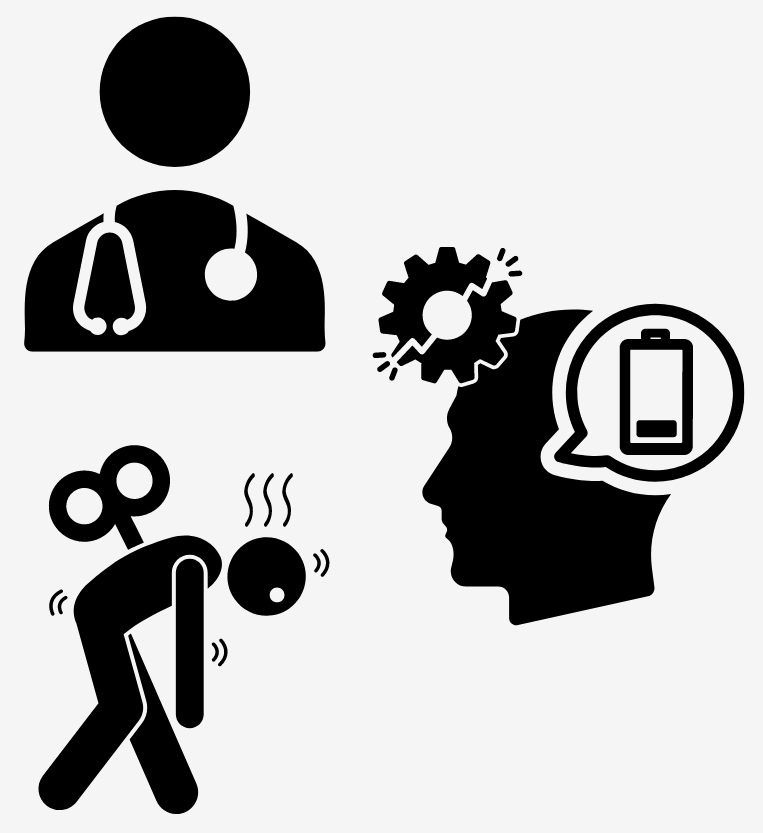
As a result, the endocrinologist ordered an MRI to check for pituitary abnormalities in the brain. Desperate for answers, I was actually disappointed when the office called me with the results, noting the scan revealed no abnormalities. The MRI was on January 29th, and my follow-up appointment with the endocrinologist is scheduled for February 27th. Frustrated by the lack of clarity and having spent a thousand dollars on the MRI and over two thousand dollars on countless labs and imaging tests before that, I emailed my endocrinologist, expressing my concerns about waiting another month for next steps.
In her reply, she explained that she would be out of town until mid-February, and, therefore, could not see me before then. The latter part of her email read: “your labs revealed that you have hypothalamic loss of periods, most commonly caused by excessive exercise or eating disorders. We hadn’t talked about these, and I was hoping to discuss this further when I see you.” This revelation forced me to confront the possibility that I’ve been in denial about my condition and its severity.
Confronting Unconscious Denial
When I saw those words – “eating disorders” – my heart sunk. It forced me to confront the harsh reality of my disordered eating behaviors and the unconscious denial that has overshadowed my struggles for years. For instance, I’ve continuously convinced myself I don’t have a problem. In prior years when I struggled with severe restriction and/or periods of binging, I convinced myself I could stop at any time – when I reached X number of pounds or when I achieved some milestone in my life.
Now, despite outwardly shifting my focus from calorie restriction to muscle gain, the internal battles with food and exercise remain. While the gym offers a temporary escape from the relentless mental anguish, I’ve developed a dependence on it to maintain my existence and fragile sense of control. Likewise, strength training has become a catalyst for weighing and tracking every calorie and macro and maintaining a “clean” diet, perpetuating a cycle of obsession and fixation.
My preoccupation with healthy eating and fitness dominate my thoughts. Perhaps, instead of overcoming these patterns, I’ve merely shifted to another part of the disordered eating spectrum. While I had considered a potential connection between my health struggles and my disordered relationship with food and exercise, the revelations from the endocrinologist confirmed this reality. This newfound awareness reveals how my coping mechanisms have evolved into a cycle of self-destruction, blurring the line between what I perceived as health and the harm I’ve inflicted upon myself.
Navigating the Fine Line Between Health and Harm
The line between health and harm is a fine one. With my health complications, it has become painfully clear that I err on the side of self-destruction. Ironically, in my pursuit of health, I’ve inflicted harm upon myself through these disordered behaviors. Realizing this now, I’m overwhelmed with sadness and guilt. I try to remind myself that these coping mechanisms have helped me survive, but I’m plagued by the fear of existing health consequences and further deterioration.
Despite consuming more calories than ever before in an effort to build lean muscle mass, I remain entrenched in restrictive eating habits and compulsive exercise tendencies. If I continue down this path of isolation and self-destructive behaviors, I may not see future birthdays. As I await my upcoming appointment with the endocrinologist for further clarity, I recognize the urgent need for change and the importance of prioritizing my health.
Confronting the Future: Prioritizing Health
The time spent with my parents provided invaluable clarity, allowing me to reflect on the necessity of prioritizing my health above all else. Moreover, I recognized the importance of connection and the detrimental effects of self-isolation. To this day, despite living with my parents at the onset of my challenges, I’ve carried the burdens of my mental health struggles and disordered eating behaviors in silence.
Confronting Disordered Eating Truths: Suffering in Silence
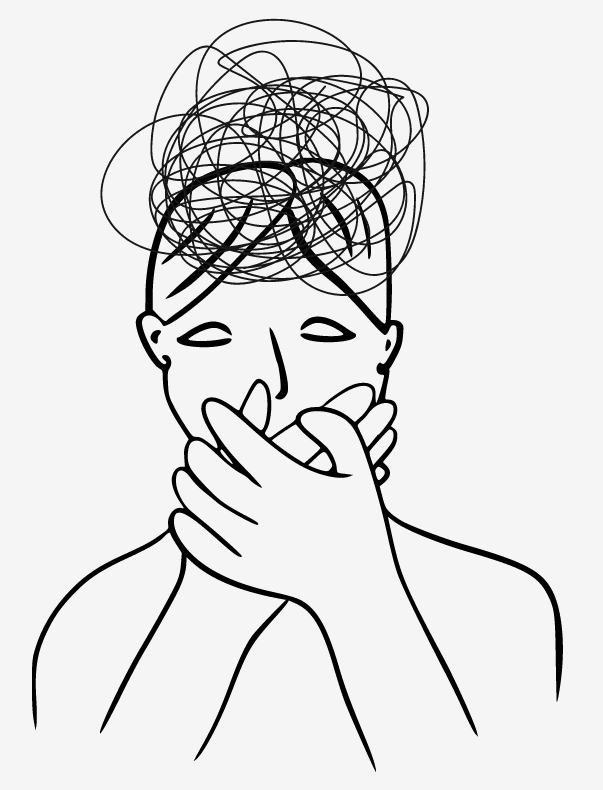
Recent physical health issues have shattered any illusions of normalcy, forcing me to confront the truths of my disordered relationship with food and exercise. For eight, ongoing years, I’ve faced the relentless battles against disordered eating, compulsive exercise, distorted body image, and the complexities of my own mind.
As I prepare for my upcoming endocrinologist visit, I am filled with trepidation. The thought of peeling back the layers of denial and speaking my silent struggles is daunting, to say the least. Despite this fear and the uncertainty that lies ahead, I recognize the importance of breaking the silence surrounding my mental health struggles and the detrimental effects of not seeking support.
Barriers to Seeking Support
I realize now the barriers that hindered my ability to seek support. At the forefront was my lack of awareness and inability to fully grasp the severity of my struggles. However, with the emerging health issues, I can no longer deny what’s right in front of me. Yet, even as it has become evident that I’ve been slowly killing myself for over eight years, I still question the validity of my suffering and whether it meets the diagnostic criteria for an eating disorder, then or now.
Additionally, the passage of time since the onset of my disordered eating struggles and their evolution into different forms over the years fuels anosognosia and my reluctance to seek support. These feelings of invalidity and the barriers to seeking help demonstrate the profound stigma, isolation, and internalized shame that have compelled me to suffer in silence with my disordered eating struggles.
A Message to You: Don’t Suffer in Silence
If there’s even the slightest whisper urging you to seek help, please reach out. Don’t suffer in silence. I understand all too well the feeling of invalidation that accompanies mental health struggles kept hidden in the shadows.
Please, don’t wait until your health deteriorates before reaching out. The toll of disordered eating and eating disorders, both mentally and physically, is profound. Your pain is real, and your suffering is valid. Despite what your mind may be telling you, silence is only an accomplice to the harm that continues to unfold.
So, I implore you to learn from my mistakes and my journey. Take that first step, and confide in someone you trust. Seek professional help. Speaking from experience, you can’t beat this alone. Your journey towards healing begins with breaking the silence.
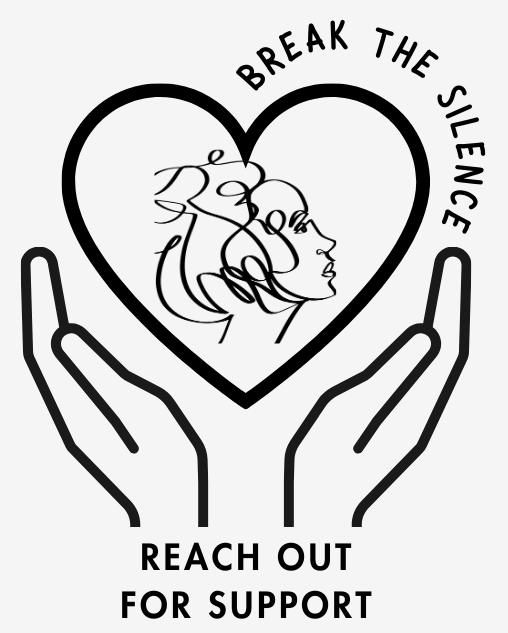
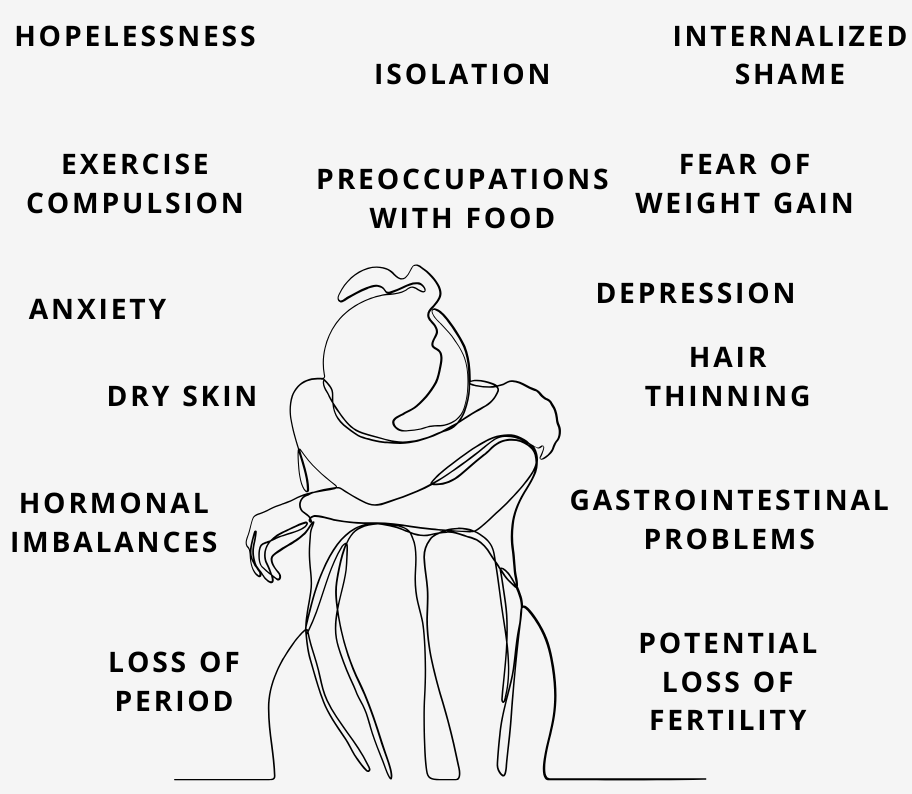


Pingback: Disordered Eating: A Journey to Healing - Breanna Williams
Pingback: Denial to Discovery: Eating Disorder Awareness - Breanna Williams
Pingback: Blossoming Anew: Renewal and Rebirth - Breanna Williams
Pingback: Embracing Growth: From Silence to Strength - Breanna Williams
Pingback: Stress: Finding Calm in the Storm - Breanna Williams
This blog post has left us feeling grateful and inspired
Thank you so much! I’m glad to hear that my post resonated with you. It’s not an easy story to share, but it’s worth it if I can make a difference.
It’s always a joy to stumble upon content that genuinely makes an impact and leaves you feeling inspired. Keep up the great work!
That’s my goal – to let others know they aren’t alone and, perhaps, give them hope. I’m glad to see I’m making an impact. Thank you so much for reading!
Your knowledge and expertise on various topics never ceases to amaze me I always learn something new with each post
Thank you so much for reading my posts!
Pingback: Personality Paralysis: The Perils of Perfectionism - Breanna Williams